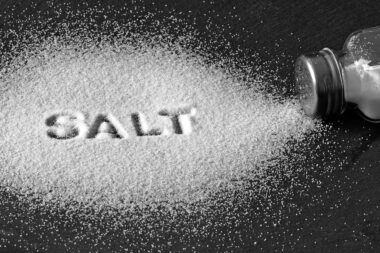The Role of Nutrition in Preventing Dog Diseases
Proper nutrition plays a vital role in preventing common dog diseases. A balanced diet rich in essential nutrients can significantly reduce the risk of health issues faced by dogs. Many dog owners might overlook the importance of feeding their pets high-quality food. Poor nutrition can lead to various ailments like obesity, diabetes, and skin problems. Incorporating fresh vegetables, fruits, and high-quality meats can provide the necessary vitamins and minerals. Moreover, understanding your dog’s specific dietary needs is crucial. For example, breeds with a tendency for joint issues may benefit from Omega-3 fatty acids. Consulting with a veterinarian can guide you in making the best dietary choices for your dog. Regularly reviewing and adjusting your dog’s diet based on their age, breed, and health status fosters long-term wellbeing. Additionally, portion control and avoiding harmful foods like chocolate or onion are essential. A well-nourished dog has a stronger immune system, increasing their resistance to diseases. This simple approach can add years to your pet’s life while simultaneously enhancing their quality of life. Nutritional knowledge is a powerful tool for every dog parent.
In addition to balanced meals, hydration is another critical aspect of a dog’s nutrition that is often overlooked. Dogs must have constant access to fresh water to maintain their health. Dehydration can lead to severe complications, including kidney disease. To encourage hydration, consider investing in a pet water fountain. These gadgets keep water fresh and moving, enticing your dog to drink more frequently. Moreover, certain dog foods, especially wet or canned varieties, can aid in hydration levels. Dogs require different amounts of water depending on their size, age, and activity level. Monitoring their water intake is essential to ensure they remain hydrated, especially during hot weather or vigorous exercise. Keep an eye on your dog’s drinking habits and consult your veterinarian if you notice changes. Maintaining a healthy hydration routine contributes to organ function and digestion. Regular water intake not only supports overall health but also impacts coat quality. A hydrated dog will often exhibit a shiny coat and healthy skin. It’s pivotal for dog owners to be proactive about their dogs’ hydration needs, as it significantly influences their overall health and vitality.
Understanding Dog Food Labels
Understanding dog food labels can empower owners to make informed choices regarding their dog’s diet. Ingredients lists provide insights into the quality of the food, highlighting what nutrients are included. Look for high-quality protein sources like chicken, beef, or fish as the first ingredient. Avoid foods that list vague terms like ‘meat meal’; instead, prefer defined sources. The guaranteed analysis on the label shows the percentage of protein, fat, fiber, and moisture. This information helps assess whether the food meets your dog’s nutritional requirements. Ensure that the protein content is adequate for your dog’s age and activity level; puppies need more protein than adult dogs. Additionally, be wary of artificial additives, colors, and preservatives. Opt for natural or organic brands whenever possible. Doing research on various brands can help you identify potential allergens or harmful ingredients your dog might react to. Reading reviews and forums can also provide valuable insights into the quality and effectiveness of different dog food options. Educating yourself on dog food labels ensures your furry friend’s diet is nutritious, thereby promoting their long-term health.
Furthermore, meal frequency is an aspect of feeding that shouldn’t be neglected. The number of meals a dog should have daily depends on their age and health status. Puppies typically require more frequent feeding than adult dogs. Feeding small portions throughout the day can aid digestion and prevent bloating. For most adult dogs, two meals a day are usually sufficient. It’s essential to establish a consistent feeding schedule to help avoid obesity. Overfeeding can lead to significant health issues, including diabetes and joint problems. Regularly measuring portions can assist in maintaining a dog’s ideal weight. Additionally, being mindful of human food scraps can curb unwanted weight gain. Training your dog to wait patiently for their meals fosters discipline while reducing excessive begging behaviors. Serving your dog proper portions shows care and responsibility as a pet owner. Always monitor their weight, and consult your vet if fluctuations occur. A comprehensive feeding plan based on nutritional needs and proper meal frequency supports overall wellbeing. Appropriate feeding habits contribute to reducing the risk of various diseases. Nutrition, therefore, is a critical foundation for your dog’s health.
The Benefits of Supplements
Using dietary supplements can also enhance a dog’s nutritional intake, helping prevent diseases. One common supplement is Omega-3 fatty acids, beneficial for heart and joint health. They can reduce inflammation, which is critical for dogs prone to arthritis or other joint issues. Glucosamine can also help maintain cartilage, further supporting mobility in older dogs. Probiotics support digestive health and can enhance nutrient absorption, fostering general wellbeing. Additionally, multivitamins can fill in nutritional gaps, ensuring your dog receives essential nutrients not always available in their diet. Always consult a veterinarian before introducing supplements to your dog’s regimen, as excessive amounts can lead to health problems. Consider your dog’s specific needs and conditions when selecting supplements. Natural options are generally favored due to fewer side effects; however, reputable commercial supplements also exist. Investing in your dog’s health through quality supplements can bolster their immune function and prevent common diseases. Proper supplementation provides long-term health benefits and improves your dog’s quality of life. Take a proactive approach to ensure your furry friend thrives through carefully selected nutritional choices and supplements.
In conclusion, the role of nutrition in preventing dog diseases cannot be overstated. A proactive approach to feeding will significantly influence a dog’s health and longevity. By prioritizing high-quality food, hydration, and proper meal frequency, you lay a strong foundation for their wellbeing. Furthermore, educating yourself about dog food labels ensures informed decisions when selecting meals. Employing dietary supplements, when appropriate, can further fortify your dog’s diet while addressing individual health concerns. Each aspect plays a critical role in minimizing the risk of numerous diseases and enhancing your dog’s overall vitality. Cultivating a nutritious diet fosters a happier and healthier dog, ultimately enriching the bond between you and your furry companion. Regular visits to the veterinarian provide essential insights into dietary needs and health status. Staying informed about dog nutrition leads to better care and preventive measures. Making conscious decisions about feeding practices significantly impacts your dog’s life quality. Thus, remember that successful dog parenting involves ongoing learning and commitment to wellness. The spirit of love for your pet is reflected in the meticulous care you provide through thoughtful nutrition.
Always be open to revisiting your dog’s nutrition plans as their needs may change over time. Factors such as age, breed, lifestyle, and health conditions can influence dietary requirements. Regular consultations with your vet allow for necessary adjustments, ensuring your dog’s diet remains optimal throughout their life. Being an informed and attentive dog parent means monitoring any changes in their behavior or physical condition closely. Analyzing their energy levels, coat quality, and overall behavior can indicate whether diet alterations are necessary. Additionally, understanding your dog’s food preferences can make mealtime more enjoyable for them. Experimenting with various food varieties can help you find the best-balanced diet that meets all their needs. Consideration of your pet’s tastes, combined with nutritional knowledge, will result in a more engaging and enjoyable feeding routine. It is essential to celebrate and appreciate the joy your dog brings to your life, fostered through remarkable care, including superb nutrition. With the right strategies and a deep commitment to nutrition, you can enhance your dog’s overall health, happiness, and longevity. Thus, every dog parent can ensure their furry friend lives a vibrant, fulfilling life.
Ultimately, preventing diseases through nutrition can lead to both emotional and financial benefits for dog owners. Reduced veterinary costs due to fewer health issues contribute to a more sustainable approach to dog parenting. Investing in quality nutrition is like investing in preventive healthcare for your dog. When dogs are healthy, they have enhanced energy levels, which influences their happiness and behavior positively. Healthy dogs are less prone to anxiety and other behavioral problems. Furthermore, adhering to a well-planned diet fosters the human-animal bond, as a happy and healthy dog is a joy to be around. Such well-being also encourages active lifestyles, promoting daily exercise for both dogs and their owners. Understanding the synergistic role of nutrition and a joyful life forms the backbone of successful dog parenting. Foster a proactive mindset that emphasizes nutrition and ensures that your dog enjoys a fulfilling life free from many common diseases. A strong foundation based on healthy choices leads the way to a longer and happier life. Nutrition plays a vital role, so it is essential to stay informed and dedicated to your dog’s wellbeing.





